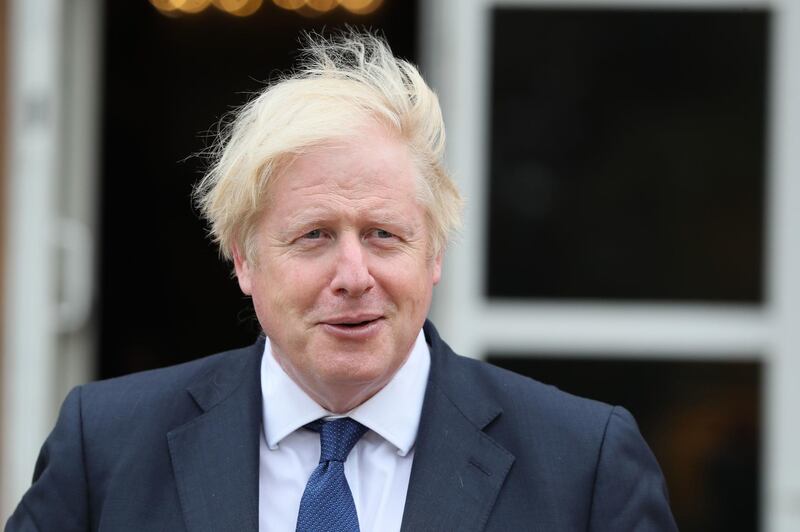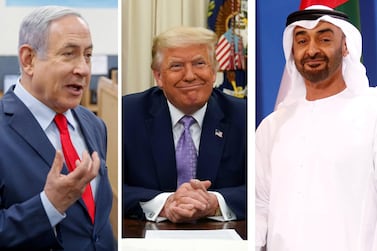Prime Minister Boris Johnson welcomed an agreement between the UAE and Israel that will lead to a full normalisation of diplomatic ties between the two states, with France also lauding the deal for holding back Israeli annexation plans.
"The UAE and Israel’s decision to normalise relations is hugely good news," Mr Johnson said on Twitter.
"It was my profound hope that annexation did not go ahead in the West Bank and today’s agreement to suspend those plans is a welcome step on the road to a more peaceful Middle East."
The UAE and Israel’s decision to normalise relations is hugely good news. It was my profound hope that annexation did not go ahead in the West Bank and today’s agreement to suspend those plans is a welcome step on the road to a more peaceful Middle East.
— Boris Johnson (@BorisJohnson) August 13, 2020
UK Foreign Minister Dominic Raab said it was "time for direct talks between the Palestinians and Israel, the only route to lasting peace".
“This is a historic step which sees the normalisation of relations between two great friends of the UK," Mr Raab said.
Today's agreement between Israel and the UAE is a much-needed boost for peace. Welcome the suspension of annexation plans and normalisation of relations between two great friends of the UK. Time for direct talks between the Palestinians and Israel, the only route to lasting peace
— Dominic Raab (@DominicRaab) August 13, 2020
“We welcome both the decision by the UAE to normalise relations with Israel, as well as the suspension of plans for annexation – a move the UK has opposed as it would have been counter-productive to securing peace in the region.”
Shadow foreign minister Lisa Nandy said the agreement was "an important first step".
Ms Nandy said the opposition Labour party welcomed the suspension of Israel's annexation plans, which "would have been in clear violation of international law".
“The Labour Party is hopeful that this announcement will be the first step towards the full withdrawal of annexation proposals, and that this can be a catalyst for a meaningful and lasting peace to be negotiated between the Israelis and Palestinians – an outcome we believe can only be achieved by a peaceful two-state solution in the Middle East,” she said.
Mr Johnson had condemned the annexation plans as a potential breach of international law in an article published in an Israeli newspaper.
He had warned that his country would not recognise any of the territory being looked at under the plans.
Former prime minister Tony Blair praised the "courage, imagination and leadership" in securing the deal.
Mr Blair said it showed that "the modern dividing line in the Middle East is not between different faiths and cultures, but between those who wish for peaceful co-existence across the boundaries of faith and culture and those who want violent confrontation”.
In France, Foreign Affairs Minister Jean-Yves Le Drian welcomed the deal, calling Israel's decision to suspend its annexation plans a "positive step".
Mr Le Drian said the accord paved the way for a resumption of talks between Israelis and Palestinians with the aim of establishing two states.
That solution was "the only option" to achieve peace in the region, he said.
UN Secretary General Antonio Guterres said he welcomed "any initiative that can promote peace and security in the Middle East region".
Mr Guterres in June urged Israel to abandon plans to annex settlements in the West Bank, warning that this threatened prospects for peace with the Palestinians.








